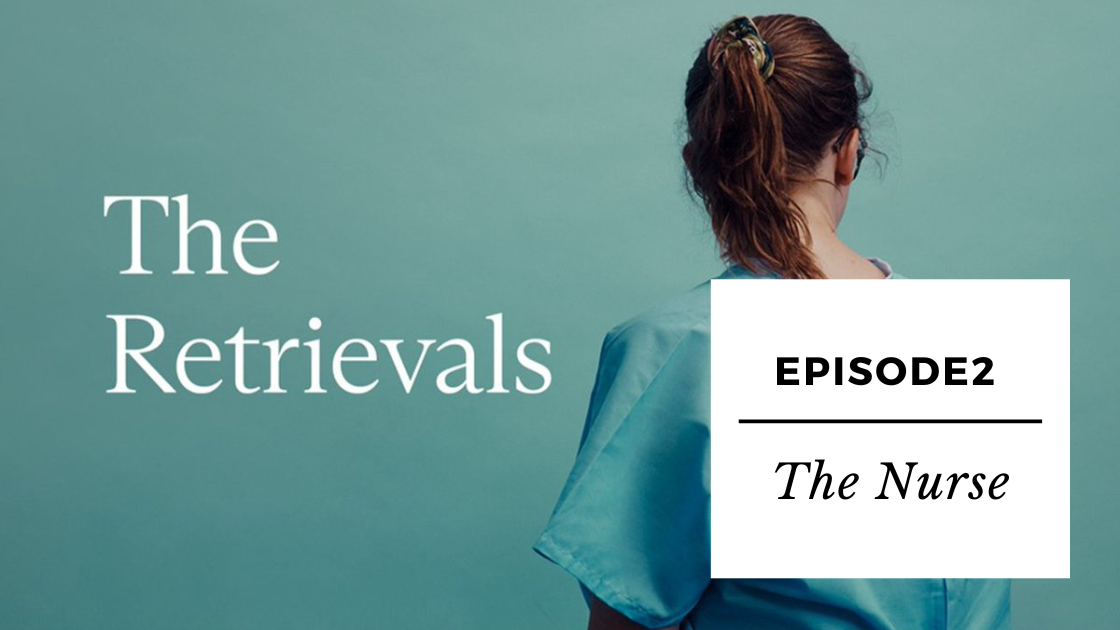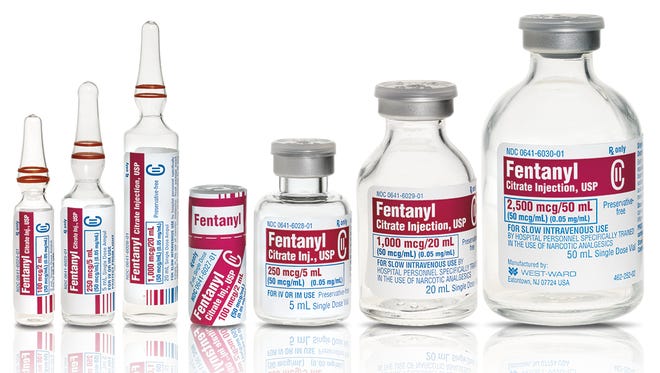
Welcome back to my analysis of The Retrievals – a new podcast about women’s pain from This American Life and The New York Times.
The podcast follows the case of women treated at Yale Reproductive Endocrinology and Infertility Clinic experiencing serious harm during their egg retrieval procedures for IVF. A nurse stole fentanyl meant to sedate patients.
The series explores women’s pain, sedation for medical procedures & ethical care.
I’m an anesthesiologist (sedation expert), an ethicist, and a woman. I’m sharing my reflections on every episode of The Retrievals.
If you missed my analysis of Episode 1, you can read it here.
Spoiler Alert: This post discusses Episode 2 of The Retrievals.
If you haven’t listened to Episode 2 yet (released on July 6, 2023), you can listen here. (And here’s an auto-generated transcript.)
Last week, we heard from patients in the Yale REI clinic, and how a Yale letter notified them that a nurse had stolen fentanyl for patients and implied no harm was done.
DOJ Letter
The Department of Justice (DOJ) sent patients a very different letter than Yale’s. The DOJ letter outlines the investigation and reveals the name of the nurse who stole the fentanyl:
Donna Monticone.
Donna wore many hats in the busy clinic. A Yale promotional video for the clinic features Donna prominently. Everyone seemed to know her, and the news was devastating.
“Donna was the person handling all the phone calls. Donna was the person ordering your meds. Donna was the person you called when you were in pain, Donna was, you know, it was all Donna. In fact, I had the number saved in my phone as ‘Donna REI.’ OK?”
~Leah (a patient)
Getting Caught
Donna initially stole and used the fentanyl at the REI (reproductive endocrinology) clinic, swapping it for saline (salt water) up to 4 times daily.
Then, she starts taking the fentanyl and swapping them for saline at home. She returned some of the tampered vials to the clinic storeroom.
On Friday, October 30, 2020, an anesthesiologist noticed that a top came off a vial too easily.

At some point on Sunday or Monday, Donna returned 175 used fentanyl vials to the clinic. She had planned to add these back to the clinic supply slowly, but she accelerated the return. She dumped the vials into two sharps containers in the clinic.
A federal criminal case is launched.
Talking to the Feds
Within weeks, Donna confesses to having tampered with 75% of the clinic’s fentanyl supply over 5 months.
She tells the federal investigators that talking to them – confessing to her addiction and behaviors – has been the best thing for her.
Then, the DOJ sends a letter to patients asking them to participate in a call about the case. While the investigators say the purpose of the call isn’t to air their stories, many of the patients needed to be heard.
“It’s almost like watching a kind of like horror reel, ah where women are all of a sudden, everyone’s kind of like, oh yeah, I was worried, oh, I was, you know, it was like, it was like a kind of being bombarded by all these women who were told to shut the f*ck up while they were experiencing something that they knew was wrong. That was what became alarmingly clear. That became alarmingly clear to me.”
~A Patient re: the DOJ call with Victims
Relationships with Patients
One of the most emotional aspects to rectify is that Donna, who so many of the patients knew and interacted with, administered the saline to some patients herself. All the while, never admitting she knew the patients were not getting real pain relief.
“And Donna was my nurse and I remember asking her if it’s normal to be in that much pain. And she looked at me and said, yes.”
These interactions are chilling, even when we have compassion for the nurse suffering from addiction.
Always a Reason
What leads a nurse to commit such a heinous act? Not just once, but over and over again for five months.
One of the patients, a defense attorney, knew that there would be more to Donna’s story than what the DOJ letter revealed.
“So I’m a criminal defense attorney for indigent persons and there’s always a reason why: why did they steal this? Why did this assault occur? Most people aren’t just stealing things because it’s funny. There’s an actual reason behind it and I wanted desperately, I think to give her a reason. So that I felt a little bit better.”
~Angela (a patient)
The Retreivals’ host Susan Burton asks, “What was the story Donna would tell about her own pain. How would she answer for what she had done?”
“The tooth fairy will be coming a lot because I’ll knock your teeth out. And maybe the ambulance will have to come because your jawbones will break.”
Court documents claim the Nurse’s ex-husband said to her and their children
Episode 2 reveals Donna’s story through court documents. Neither Donna nor anyone close to her was willing to be interviewed. The record reveals a woman struggling in a failed marriage to a volatile and abusive man, and a constant fear for her own safety and the safety of her children.
After a previous injury, Donna had taken oral opioids, not just for pain, but to cope with here traumatic home life as well.
“I turned to Fentanyl because I knew from prior experience with narcotics that it would help me to cope emotionally and mentally with what was going on in my life. It helped quiet and keep my mind calm in those moments. It’s what I felt I needed to do to endure and hold it together for my children. How this makes any sense is difficult to convey.”
~Donna Monticone
When Donna’s ex-husband was hospitalized, “all the nurses hoped he would die.” Everyone could see her situation with her ex-husband was extremely challenging, but no one saw her level of internal turmoil.
Ask for Help? Get Punished.
When confronted about her drug use, Donna denied it. But when a toxicology screen revealed that her body contained opioids, she confessed.
At least 8-15% of healthcare professionals will develop a substance use disorder during their careers, including at least 1 in 10 physicians, and 1 in 5 nurses. These numbers are similar to the general population.
In the United States alone, 1.3 to 2.3 million healthcare workers are either using drugs and/or alcohol.
When we have that many doctors and nurses with substance use disorders, it’s not rare; it’s an occupational hazard.
Opioids, like fentanyl, are the most common drugs diverted from health care facilities.
Katie, both a patient and an addiction researcher, wanted to see Donna in substance use treatment, not in jail.
The Disclosure Bind
Due to complex and putative social and regulatory factors, medical professionals are notorious for hiding substance abuse disorders and not seeking help. We are disincentivized from even seeking basic mental health support, like talk therapy or antidepressants.
“I don’t think medicine tolerates that, even though we say that we do.
I think she’d have lost her job.”
~Donna’s former coworker
For HCWs who begin using substances, this is the bind: if you confess and ask for help, you’ll be fired, compounding your life’s problems. If you deny and are found out anyway, you’ll also be fired, compounding your life’s problems.
Who is to blame?
While patients in the case were devastated to learn about Donna’s role in stealing fentanyl mean to treat their pain, they also ask where Yale is in all of this?
Yes, Donna has personal responsibility for her role, but doesn’t Yale have some responsibility?
For Katie, the addiction researcher, she wants to know what systems were in place that allowed so many patients to be harmed. Why were there numerous reports of out of control pain ignored?
What I’m listening for in upcoming episodes
Why were these powerful medications, known for being diverted, so poorly secured that a single nurse could so easily take so much? It’s clear that this clinic had no where near the amount of oversight we have in hospitals (and hospitals are perfect at prevention either).
Stay tuned for Episode 3!
Thanks for reading! Episode 3 will address what happens to Donna and who’s pain matters more. Stay tuned for my analysis all three remaining episodes of The Retrievals.
Alyssa Burgart, MD, MA is co-editor of BioethicsToday and a clinical associate professor at Stanford University. She also writes at Poppies & Propofol.